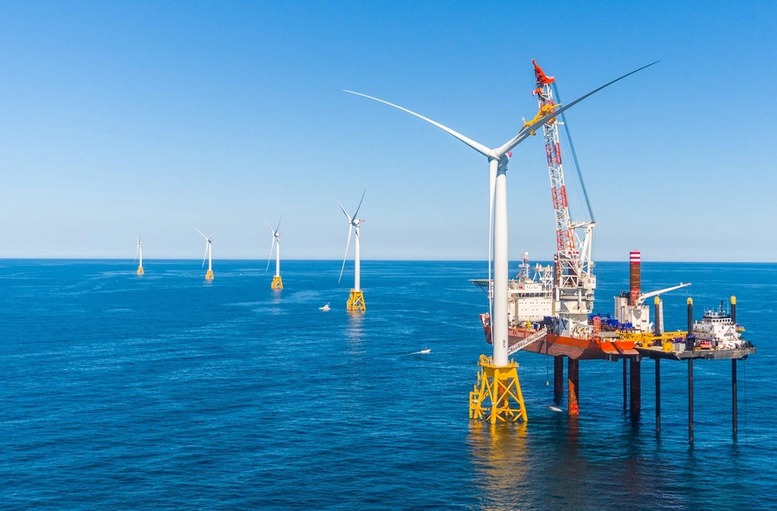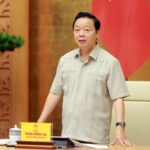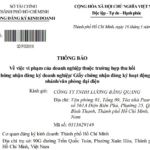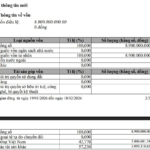
Unraveling Offshore Wind and Gas Power Projects
According to assessments and forecasts by global economic research organizations, if the FED lowers interest rates, Vietnam’s economy will grow at a rate of over 7% in the coming period. Therefore, the Government requests that the Ministry of Industry and Trade urgently review the overall power sources in the Plan for the Implementation of the Power Planning VIII, shifting the base load from coal-fired power to gas-fired power and prioritizing domestic production to achieve an annual electricity growth rate of 12-15%, ensuring national energy security and providing sufficient electricity for production, business, and people’s lives, especially commitments to foreign investors.
At the same time, the Government asks the Ministry of Industry and Trade to study the experiences of other countries in developing nuclear power and propose the development of nuclear power in Vietnam in the coming time as a base load option, minimizing environmental risks, and reporting to the Politburo for consideration and decision-making.
Establishment of a Task Force to Review Legal Obstacles in Power Project Implementation
The Ministry of Industry and Trade, in close coordination with relevant ministries, sectors, localities, and state corporations, shall focus on reviewing legal obstacles in power project implementation and promptly finalizing the draft Amended Power Law. The law should incorporate effective principles and practices from the previous Power Law and related decrees and circulars, while also addressing uncertain and variable factors by setting out principles in the law and delegating detailed regulations to the Government, such as pricing and technical standards.
Additionally, the Ministry of Industry and Trade should identify legal obstacles in developing power projects and propose amendments to relevant laws, including the Law on Investment, Law on Bidding, Law on Marine and Island Natural Resources and Environment, Vietnam Sea Law, and Law on Construction. These proposals will be consolidated by the Ministry of Planning and Investment into a project to amend multiple laws.
The Government Office is assigned to draft a decision to establish a Task Force led by Mr. Nguyen Hong Dien, Minister of Industry and Trade, and vice-led by Mr. Dang Hoang An, Chairman of Vietnam Electricity, and Mr. Le Manh Hung, Chairman of Vietnam Oil and Gas Group. The Task Force will be responsible for reviewing legal obstacles in power project implementation and proposing amendments to the Amended Power Law to ensure its highest quality. The deadline for completing this task is September 20, 2024, for submission to the National Assembly for approval at the 8th session. Deputy Prime Minister Bui Thanh Son is assigned to directly supervise this process within his authority, and matters beyond his authority will be reported to the Prime Minister.
The Task Force shall proactively mobilize forces to participate according to their functions and tasks, ensuring the best quality of the Amended Power Law and the project to amend multiple laws. Once these laws are promulgated, they will facilitate the implementation of power projects according to the approved master plan and schedule.
Maximizing Decentralization and Delegation
Drawing on the successful experience in directing and implementing the 500 kV line project, ministries, sectors, localities, corporations, and companies must mobilize the combined strength of central and local resources in carrying out socio-economic development tasks, especially in executing important national infrastructure projects, power transmission projects, and power sources.
The Government emphasizes the need to amend laws to maximize decentralization and delegation, empowering authorities at each level to resolve issues within their jurisdiction. This includes rational resource allocation, clear accountability, and enhanced monitoring tools. Ministries and localities should be authorized to make decisions and be accountable for their choices, while the Government focuses on oversight, monitoring, and facilitation according to the approved master plan and expected outcomes.
For projects that have been licensed, investors must fulfill their commitments. In cases of non-compliance, the competent authority shall resolutely revoke the license in accordance with the law.
Regarding the pilot offshore wind power project, the Politburo has already concluded in Conclusion No. 76-KL/TW dated April 24, 2024, on the implementation of Resolution No. 41-NQ/TW on the orientation of the Vietnam Oil and Gas Industry Development Strategy by 2025, with a vision to 2035, and some orientations for the new period. Therefore, the Government requests Deputy Prime Minister Bui Thanh Son to immediately assign units to implement this project. Legal obstacles regarding issues such as output and transfer pricing should be addressed through amendments to relevant laws.
The Vice Premier Demands a Report on Delayed Power Projects
“In a recent development, Deputy Prime Minister Tran Hong Ha has instructed the Ministry of Industry and Trade, the Ministry of Planning and Investment, the Ministry of Justice, and local authorities to conduct a thorough review and provide detailed reports on the number of power projects that have faced delays. This proactive step underscores the government’s commitment to addressing challenges in the energy sector and ensuring timely progress on critical infrastructure projects.”

















